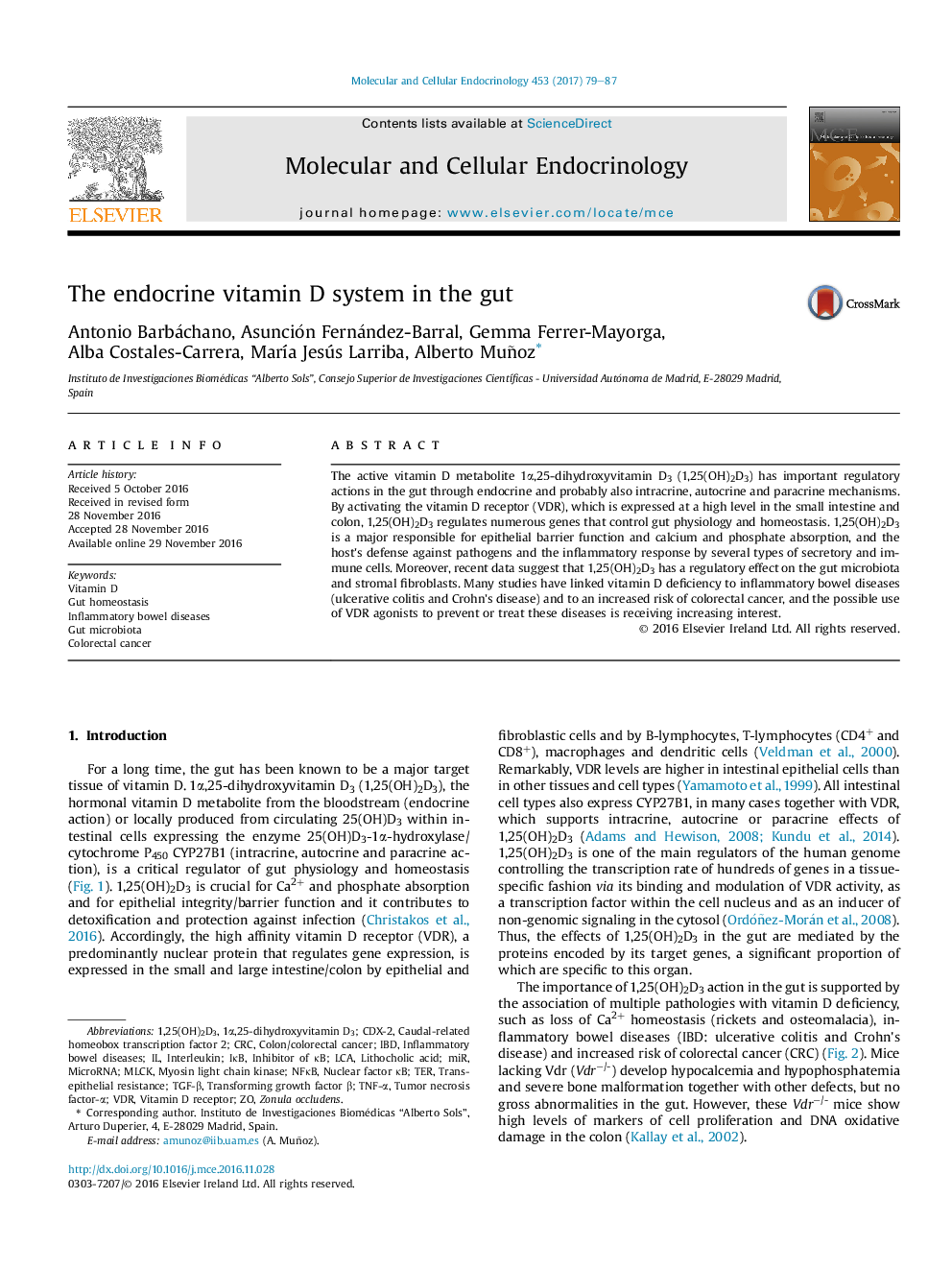| کد مقاله | کد نشریه | سال انتشار | مقاله انگلیسی | نسخه تمام متن |
|---|---|---|---|---|
| 5534052 | 1550826 | 2017 | 9 صفحه PDF | دانلود رایگان |

- Gut expresses a high level of vitamin D receptor and is a main target of vitamin D.
- Vitamin D is a major responsible for intestinal Ca2+ and phosphate absorption.
- Vitamin D induces gut epithelial barrier function and defense against pathogens.
- Vitamin D deficiency is linked to inflammatory bowel diseases.
- Vitamin D deficiency is linked to an increased risk of colorectal cancer.
The active vitamin D metabolite 1α,25-dihydroxyvitamin D3 (1,25(OH)2D3) has important regulatory actions in the gut through endocrine and probably also intracrine, autocrine and paracrine mechanisms. By activating the vitamin D receptor (VDR), which is expressed at a high level in the small intestine and colon, 1,25(OH)2D3 regulates numerous genes that control gut physiology and homeostasis. 1,25(OH)2D3 is a major responsible for epithelial barrier function and calcium and phosphate absorption, and the host's defense against pathogens and the inflammatory response by several types of secretory and immune cells. Moreover, recent data suggest that 1,25(OH)2D3 has a regulatory effect on the gut microbiota and stromal fibroblasts. Many studies have linked vitamin D deficiency to inflammatory bowel diseases (ulcerative colitis and Crohn's disease) and to an increased risk of colorectal cancer, and the possible use of VDR agonists to prevent or treat these diseases is receiving increasing interest.
Journal: Molecular and Cellular Endocrinology - Volume 453, 15 September 2017, Pages 79-87